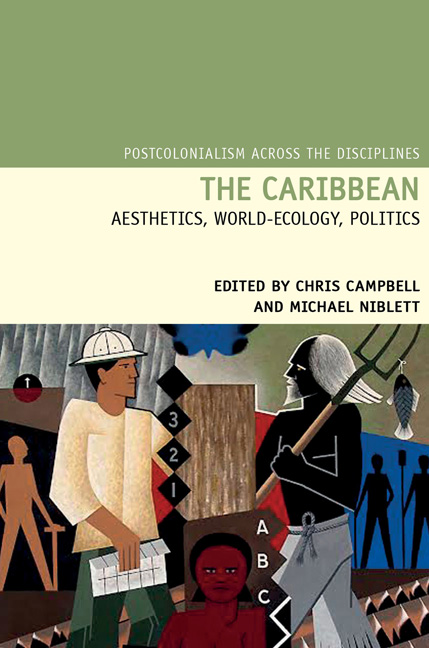Book contents
- Frontmatter
- Contents
- Acknowledgements
- Introduction: Critical Environments: World-Ecology, World Literature, and the Caribbean
- Prologue: The Brutalization of Truth
- Catastrophes and Commodity Frontiers
- Ecological Revolutions and the Nature of Knowledge
- 4 ‘The Abstract Globe in One's Head’: Robert Schomburgk, Wilson Harris, and the Ecology of Modernism
- 5 Mining and Mastery: Ethnography and World-Ecology in the Work of Charles Barrington Brown
- 6 Hegemony in Guyana: REDD-plus and State Control over Indigenous Peoples and Resources
- Economies of Extraction: Restructuring and Resistance
- Epilogue: Tingaling
- Notes on Contributors
- Index
5 - Mining and Mastery: Ethnography and World-Ecology in the Work of Charles Barrington Brown
from Ecological Revolutions and the Nature of Knowledge
- Frontmatter
- Contents
- Acknowledgements
- Introduction: Critical Environments: World-Ecology, World Literature, and the Caribbean
- Prologue: The Brutalization of Truth
- Catastrophes and Commodity Frontiers
- Ecological Revolutions and the Nature of Knowledge
- 4 ‘The Abstract Globe in One's Head’: Robert Schomburgk, Wilson Harris, and the Ecology of Modernism
- 5 Mining and Mastery: Ethnography and World-Ecology in the Work of Charles Barrington Brown
- 6 Hegemony in Guyana: REDD-plus and State Control over Indigenous Peoples and Resources
- Economies of Extraction: Restructuring and Resistance
- Epilogue: Tingaling
- Notes on Contributors
- Index
Summary
Guyana, Gold, and the Imperial Imaginary
On 8 February 1877, the scientific journal Nature printed its review of Charles Barrington Brown's Canoe and Camp Life in British Guiana. The literary reviewer, perhaps hoping to perfect the art of the backhanded compliment, opened the review by declaring that ‘Mr. Brown is a much better surveyor and explorer than he is a book-maker’ (311). The review, while impressed by the extent of the valuable details provided, castigates the author for a lack of purposeful cataloguing. Moreover, the reviewer despairs of the disservice done to the ‘general and scientific reader’ in the lack of an appendix or carefully complied index and is, it would seem, himself a reader at sea in the uncharted waters of Brown's mixture of memoir and anecdote.
Despite the singular experience of disorientation, however, Brown's account of his travels in Guyana between 1867 and 1872 is a text intimately concerned with the processes of mapping. Foremost in this regard of course, this text is an adjunct, a kind of gentleman's side project, to the official surveying work that Brown undertook in the interior of British Guiana on behalf of the Royal Geographical Society. This work was written up, with James Sawkins, in 1875, as Reports on the Physical, Descriptive, and Economic Geology of British Guiana. Canoe and Camp Life in British Guiana, by way of contrast, is the fruit of the expeditioner's evening musings: in Brown's own mind, a text ‘apart from [his] official work’ and a noting of incidents which he felt ‘worthy of perusal’ for his readers in the metropolis (1876, 1). In this sense, Canoe and Camp Life in British Guiana reads as something of a curious crepuscular companion text, the journal of a series of navigated routes. Furthermore, it is a text which is, in essence, unmoored, as the very reason for the author's presence in British Guiana is only ever glossed in the lightest detail.
Canoe and Camp Life serves as a forerunner for Brown's later literary efforts as it anticipates both the configuration and the authorial tone of Fifteen Thousand Miles on the Amazon and its Tributaries, which was co-written with William Lidstone and appeared in print in 1878.
- Type
- Chapter
- Information
- The CaribbeanAesthetics, World-Ecology, Politics, pp. 100 - 117Publisher: Liverpool University PressPrint publication year: 2016



